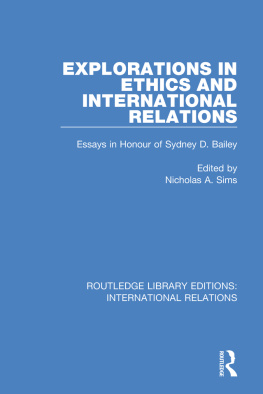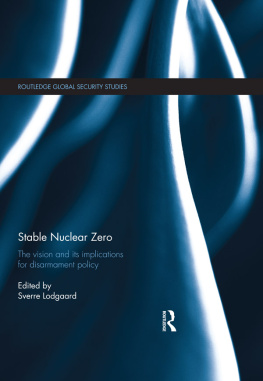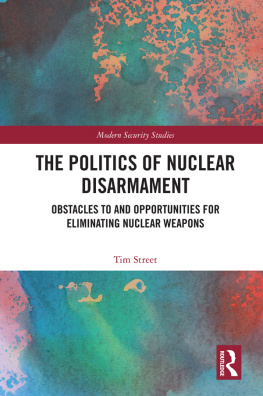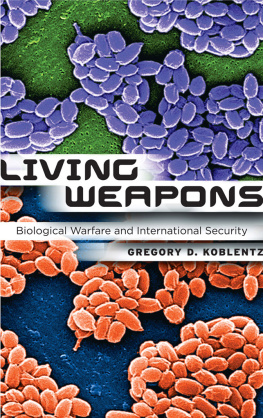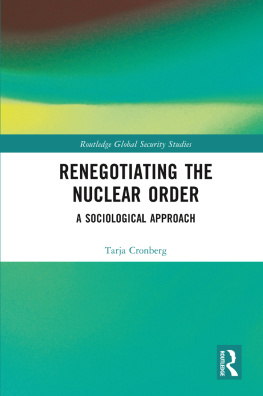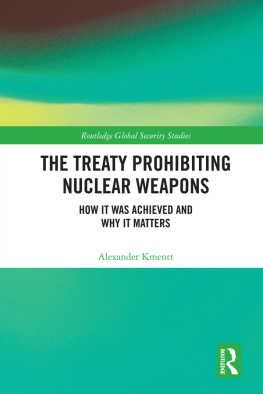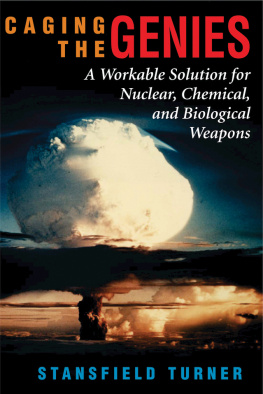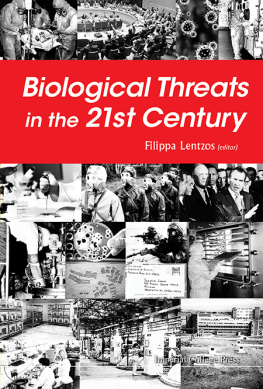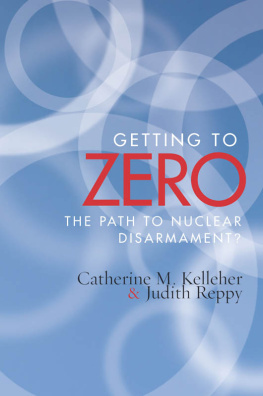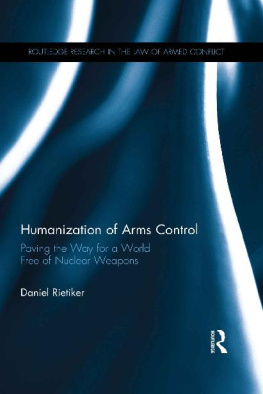
The Future of Biological Disarmament
This book examines the politics of biological disarmament, focusing on the Biological Weapons Convention (BWC) as a treaty regime and the cornerstone of biological disarmament efforts.
Biological weapons have long been banned, but the ban needs strengthening. The 1972 BWC is the cornerstone of this disarmament regime. After years of deadlock and disappointment, its Sixth Review Conference in 2006 generated new hope that biological disarmament could be reinforced from within. This book studies the intricate diplomacy of the Sixth Review Conference as a key moment in the recovery of self-confidence by the treaty parties. It makes detailed proposals for developing an Accountability Framework and stronger institutions so that the treaty regime can work more effectively. It examines alternative futures for the BWC and the trajectories to be avoided or encouraged in the short, medium and longer terms as its regime evolves. Controversially, by comparing treaty constraints on biological, chemical and nuclear weapons it restores the BWC firmly to the realm of disarmament rather than arms control and rescues it from misleading identifications with counterproliferation and counterterrorism models.
This book will appeal to students of biological weapons, weapons of mass destruction, international security and IR in general.
Nicholas A. Sims is Reader in International Relations at the London School of Economics. He is author of four books on aspects of disarmament.
Series: LSE international studies
Series Editors: John Kent, Christopher Coker, Fred Halliday,
Dominic Lieven and Karen Smith
The International Studies series is based on the LSEs oldest research centre and like the LSE itself was established to promote inter-disciplinary studies. The Centre for International Studies facilitates research into many different aspects of the international community and produces interdisciplinary research into the international system as it experiences the forces of globalisation. As the capacity of domestic change to produce global consequences increases, so does the need to explore areas which cannot be confined within a single discipline or area of study. The series hopes to focus on the impact of cultural changes on foreign relations, the role of strategy and foreign policy and the impact of international law and human rights on global politics. It is intended to cover all aspects of foreign policy, including the historical and contemporary forces of empire and imperialism, the importance of domestic links to the international roles of states and non-state actors, particularly in Europe, and the relationship between development studies, international political economy and regional actors on a comparative basis, but is happy to include any aspect of the international with an inter-disciplinary aspect.
American Policy Toward Israel
The power and limits of beliefs
Michael Thomas
The Warrior Ethos
Military culture and the War on Terror
Christopher Coker
The New American Way of War
Military culture and the political utility of force
Benjamin Buley
Ethics and War in the 21st Century
Christopher Coker
Armed Groups and the Balance of Power
The international relations of terrorists, warlords and insurgents
Anthony Vinci
The Future of Biological Disarmament
Strengthening the treaty ban on weapons
Nicholas A. Sims
The Future of Biological Disarmament
Strengthening the treaty ban on weapons
Nicholas A. Sims
First published 2009
by Routledge
2 Park Square, Milton Park, Abingdon, Oxon OX14 4RN
Simultaneously published in the USA and Canada
by Routledge
711 Third Avenue, New York, NY 10017, USA
Routledge is an imprint of the Taylor & Francis Group, an informa business
2009 Nicholas A. Sims
Typeset in Times by Wearset Ltd, Boldon, Tyne and Wear
All rights reserved. No part of this book may be reprinted or reproduced or utilised in any form or by any electronic, mechanical, or other means, now known or hereafter invented, including photocopying and recording, or in any information storage or retrieval system, without permission in writing from the publishers.
British Library Cataloguing in Publication Data
A catalogue record for this book is available from the British Library
Library of Congress Cataloging in Publication Data
A catalog record for this book has been requested
ISBN10: 0-415-47580-5 (hbk)
ISBN10: 0-203-87882-5 (ebk)
ISBN13: 978-0-415-47580-8 (hbk)
ISBN13: 978-0-203-87882-8 (ebk)
For Linden
Contents
This book continues a body of writing which began with The Diplomacy of Biological Disarmament (1988) and included The Evolution of Biological Disarmament (2001). It is complete in itself, and does not require a knowledge of the earlier books; but it is hoped that those who are acquainted with them will find a certain consistency of views expressed from the same distinctive standpoint.
Biological weapons have long been banned, but the ban needs strengthening. The 1972 Biological Weapons Convention (BWC) is the cornerstone of this disarmament regime. After years of deadlock and disappointment, its Sixth Review Conference in 2006 generated new hope that biological disarmament could be reinforced from within. It did this by taking the BWC as it stands and agreeing extended understandings and procedures to use it more fully. This book studies the intricate diplomacy of the Sixth Review Conference as a key moment in the recovery of self-confidence by the treaty parties. It makes detailed proposals for developing an Accountability Framework and stronger institutions so that the treaty regime can work better. It examines alternative futures for the BWC and the trajectories to be avoided or encouraged in the short, medium and longer terms as its regime evolves. Controversially, by comparing treaty constraints on biological, chemical and nuclear weapons, it restores the BWC firmly to the realm of disarmament rather than arms control and rescues it from misleading identifications with counterproliferation and counterterrorism models.
Biological disarmament stands at the intersection of two disciplines, international relations and international law. This book is informed by an academic and policy interest of long standing in how diplomacy and law flow into international institutions for disarmament and their associated treaty regimes, which are not static, but are in constant evolution. It seeks to contribute to a deeper understanding of how disarmament treaty regimes evolve by a close study of the BWC as the cornerstone of one such entity.
It is not a book about biological weapons or the science and technology which might, if misused, enable their production. Neither is it about the history of past biological warfare incidents and programmes. For the first, the reader is referred to Malcolm Dandos excellent introduction in Bioterror and Biowarfare: A Beginners Guide (Oxford: Oneworld, 2006) or Malcolm Dando and Vivienne Nathanson (eds), Biotechnology, Weapons and Humanity , 2nd edn (London: British Medical Association, 2004); for the second, to Erhard Geissler and John Ellis van Courtland Moon (eds), Biological and Toxin Weapons: Research, Development and Use from the Middle Ages to 1945 (Oxford: Oxford University Press, 1999) and its successor volume edited by Mark Wheelis et al ., Deadly Cultures: Biological Weapons since 1945 (Cambridge, MA: Harvard University Press, 2006). From a slightly different angle, much useful information about the weapons, the science and past incidents is contained in Public Health Response to Biological and Chemical Weapons: WHO Guidance , 2nd edn (Geneva: World Health Organisation, 2004) compiled by a large team of expert contributors under the Executive Editorship of J.P. Perry Robinson.


